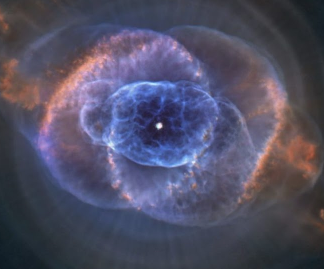We’re maybe about 2 percent in—if that—but by God, we’re gaining on it.
Reading this article about new insights into how “useless” (we think) RNA might have been changed by DNA mutations into mRNA coding for new proteins—which, in turn, made primate brains grow and furrow into human brains—I thought, “We are gobbling from the Tree of Knowledge. And we have our eye on that other tree. This is what we killed off God for.”
How wised-up was the myth that at our very beginning, our creator already saw what we were going to get up to and said, “Not so fast, pipsqueak,” and slammed a couple of restrictions on us one of which we immediately violated (“It’s her fault!”), and then exiled us to millennia trudging through the desert of hard labor in the hope that THAT would keep us out of trouble? But no, here we are, back at the gate, already raiding the apples.
Please, don’t take any of this literally. I’m not a religious person. I just think humans are too big for our britches and that the eerie, intricate intelligence we’re beginning to uncover inside our own cells, often in molecules we’d cavalierly dismissed as “junk,” ought to humble us instead of emboldening us to step up our invasive hacking and splicing. Our own intelligence is way too crude and our motives too rapacious to do much besides botch and exploit. Inside the cell or the brain, we’re basically bulldozing straight roads through the rainforest to bring in the oil rigs and the enslaved rubber tappers. By God, we’re going to bend this thing to our will! and our will is More! Ready or not, we’re the gods now. Isn’t that what we always wanted?
In the decades and centuries to come we’re going to create monsters and disasters, and maybe—in unintended collaboration with the vast intelligence that, like a patient mother, cleans up messes and even finds bright ideas in them—a few miracles.

My comment was:
Much deeper than attire, it’s folk religion. “Science” is to our time what the One Church Catholic and Universal was to the fourteenth century — the source of cosmology, explainer of existence, consoler for mortality, generator of culture. The people you cite are analogous to those buying saints’ amulets, genuflecting in church on Sundays, hanging a cross over their bed, reflexively repeating the prayers. They do not have the profound understanding of the “theologians” — the scientists. (How many peasants do you think could explain transubstantiation?) In fact, they have all kinds of wild and superstitious misunderstandings.